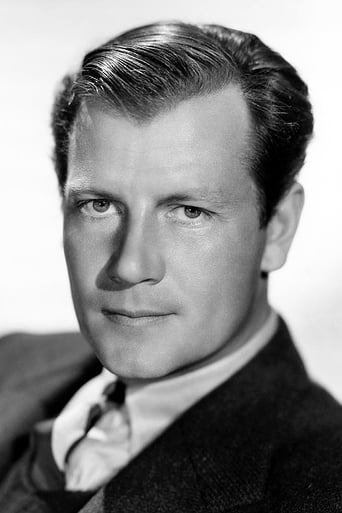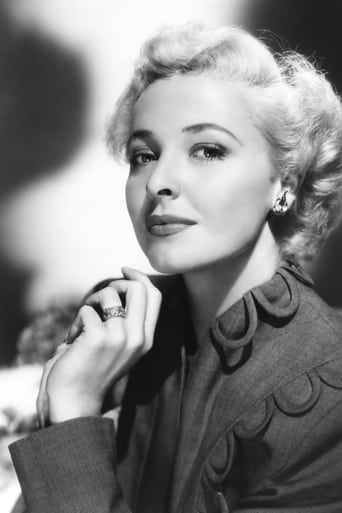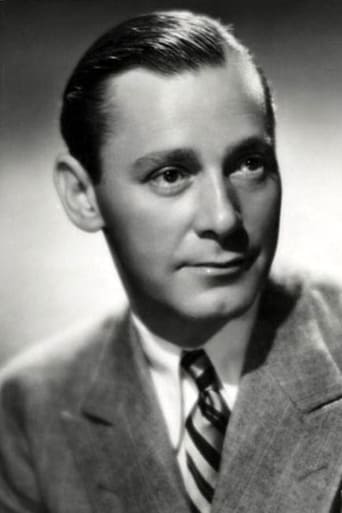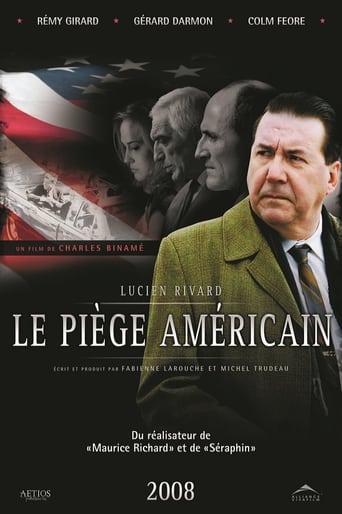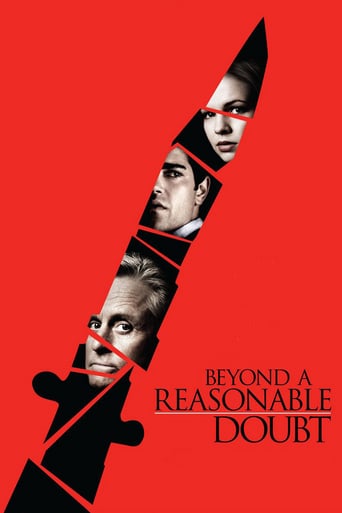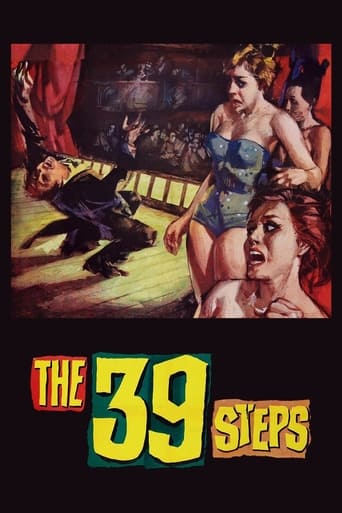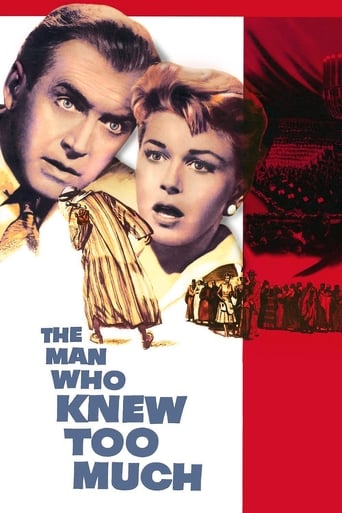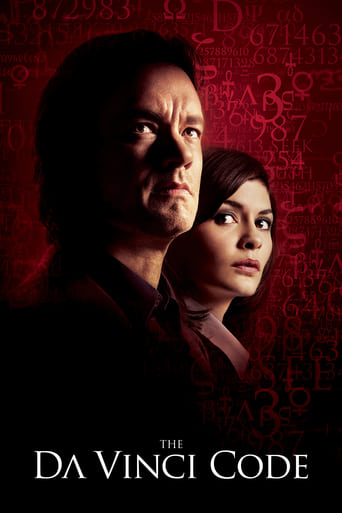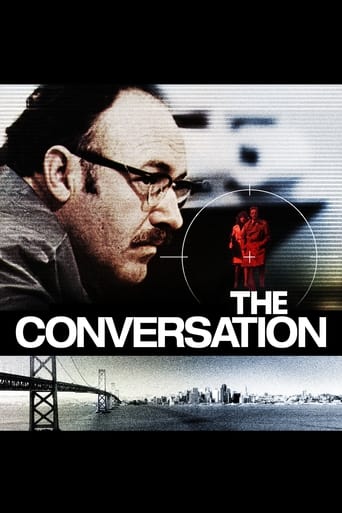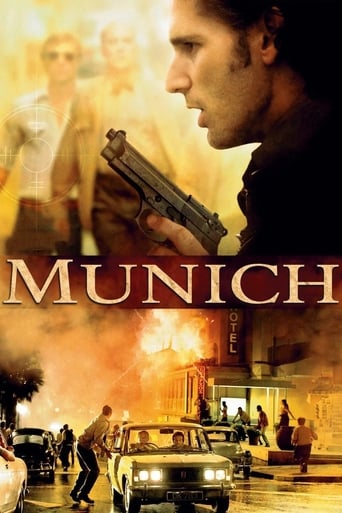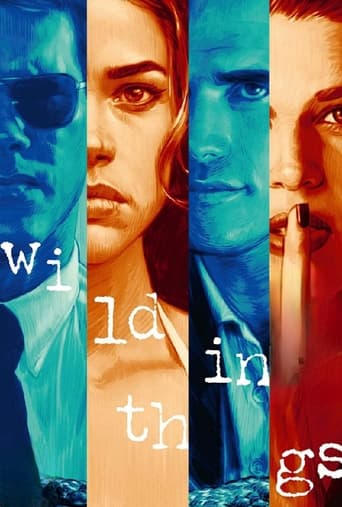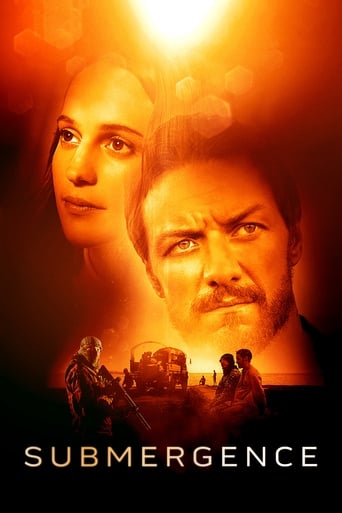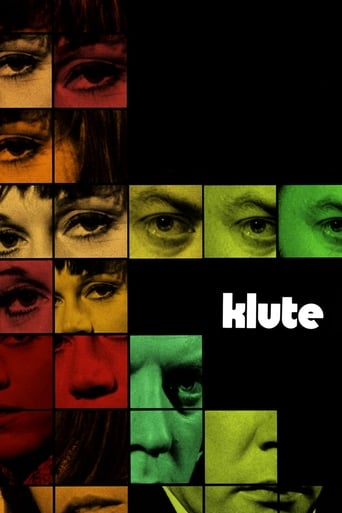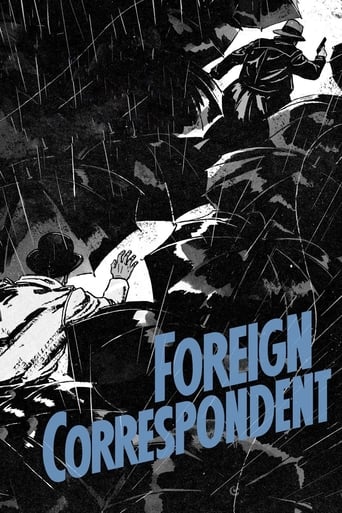
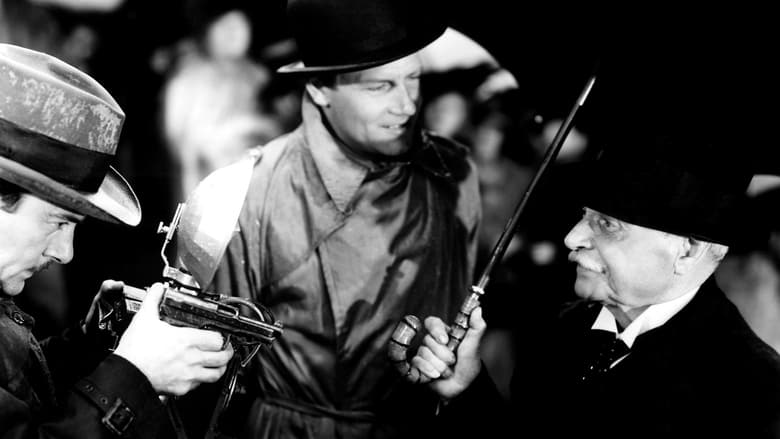
Foreign Correspondent (1940)
American crime reporter John Jones is reassigned to Europe as a foreign correspondent to cover the imminent war. When he walks into the middle of an assassination and stumbles on a spy ring, he seeks help from a beautiful politician’s daughter and an urbane English journalist to uncover the truth.
Watch Trailer
Cast


Similar titles
Reviews
FOREIGN CORRESPONDENT is the second film of Hitchcock's one-two punch in 1940, yet its legacy has been mostly eclipsed by the more widely-beloved REBECCA (1940, 8/10), which usurped a BEST PICTURE win in the Oscar games, while the former is also a BEST PICTURE nominee with a total 6 nominations. In retrospect, FOREIGN CORRESPONDENT may be a lesser compelling romance due to the insipid chemistry from its two leads, but no doubt it is a top-notch spy thriller from the master of suspense, with a trio of upstaging supporting players (Bassermann, Marshall and Sanders), plus its FX are rather cutting-edge at its time, a distinguishing precursor of the similar themed NORTH BY NORTHWEST (1959, 8/10), which would arrive nearly 2 decades later. Johnny Jones (McCrea), under the pen name Huntley Haverstock, is appointed as the new foreign correspondent by New York Globe, arrives in Netherland to get a clear picture of the impending war. Soon he witnesses a staged (fake) assassination of Dutch diplomat Van Meer (Bassermann), whereas the real Van Meer is drugged and kidnapped out of the country. Jones becomes the man who knows too much and is chased by unnamed killers, escaped to London with Carol (Day) to her father Stephen Fisher (Marshall), a leader of a peace party, the romance is budding but viewers will realise Mr. Fisher is a fellow conspirator of the kidnap. In no time Jones falls upon as a target of a murdering plan, this is where Hitchcock is at his best, however illogical it seems in the script, an unbeknownst Jones visits the Westminster Cathedral tower with his "bodyguard" Rowley (Gwenn), designated by Fisher to dispatch Jones, Hitchcock ingeniously plays with audience's anticipation of the approaching danger, generates a frisson of thrill combined with priceless gallows humour although we all evidently aware that Jone's narrow escape is the default upshot.German stage actor Albert Bassermann is honoured with an Oscar nomination as the upstanding diplomat under interrogation for war information, incredibly is that he doesn't speak English, all his lines are uttered with phonetic assist, and the final outcome is a heart- rending one, boosted by his self-revealing contempt to the war through the bird-feeding people metaphor, which first time it is casually articulated like an evasive strategy to Jones' slack pestering, but the second time, under the severe mental torture, its becomes a meaningful and encouraging enlightenment. Herbert Marshall is on an equal footing in his two-faced suaveness, his aloofness contends to be a requisite for a spy, he knows his undoing is forthcoming, even at his remorseful eleventh hour, he maintains his dignity and doesn't descend to desperate malignancy. George Sanders, who also stars in REBECCA, brings his usual conceited mien to the role of Scott ffolliott (the capital letter in his surname was dropped in memory of an executed ancestor), another report who is considerably more sharp-witted in the line of work. All above only makes both McCrea and Day too broad and bland in their gauche leading parts. A revelational discovery is near the ending, Hitchcock and his crew mounts a totally engaging scenario with plane crush-landing on the sea surface, in light of its time of making, its persistent impact remains surprisingly unabated. So in a nutshell, FOREIGN CORRESPONDENT may not be the crème de la crème among Hitcock's oeuvre, certainly it doesn't tarnish his reputation either, and fairly speaking, its spy tall-tale is far more engrossing than most of the products in this long-running genre still flourishing today
"Foreign Correspondent" was Alfred Hitchcock's second Hollywood film. (The first was "Rebecca"). The action opens in August 1939, the last days of peace before the outbreak of war. Johnny Jones is reporter with the New York Globe who is sent to Europe to report on the looming crisis, despite the fact that he has little knowledge of, or interest in, foreign affairs. His editor has been impressed by his success in exposing crime in the city and believes that he will display a similar tenacity and courage in uncovering the truth behind the European crisis. Once in Britain, Jones becomes involved with a conspiracy by enemy spies to assassinate- or possibly to kidnap- a Dutch statesman. He also finds time to conduct a romance with the daughter of a prominent British politician. (In Europe Jones goes by the alias "Huntley Haverstock"; to avoid confusion I shall refer to him as "Jones" throughout).Filming in neutral America in 1940, Hitchcock faced a similar problem to which that had confronted him while making his British spy thriller "The Lady Vanishes" in 1938, before war broke out- the unwillingness of the film companies to upset the Nazis. Everyone knew that "The Lady Vanishes" had really been set in Germany, but he had been forced to disguise the setting as an unnamed European dictatorship. Similarly, everyone knew that the villains in "Foreign Correspondent" were supposed to be Germans, but even at the end of the film, when war has broken out and bombs are falling on London, the words "German", "Germany" and "Nazi" are never used.Hitchcock has fun at the expense of American neutralists in the scene where an American sea-captain refuses to allow an American journalist to send a report to an American newspaper from on board his ship, on the grounds that to do so would be a breach of neutrality. The figure of Stephen Fisher, the leader of the "Universal Peace Party" who turns out to be a treacherous enemy agent, may have been a pointed reminder that by 1940 ostensibly pacifist or neutralist organisations on both sides of the Atlantic, such as Hastings Russell's British People's Party or the America First Committee, counted many overt or covert Fascist sympathisers among their members.The film was nominated for the "Best Picture" Oscar, but lost to "Rebecca", Hitchcock's only film to win "Best Picture". It also received five other unsuccessful Academy Award nominations. Today, however, it is difficult to see why it was so highly thought of at the time. Certainly, it contains several effective suspense sequences, notably the scene where Joel McCrea and Laraine Day are hiding in a Dutch windmill from the villains, McCrea's escape across the rooftops of the hotel and the shooting down of the airliner by an enemy destroyer. The final scene, in which McCrea makes an impassioned broadcast to the sound of enemy bombs falling on London, makes a great emotional impact. Hitchcock also displays his fondness for setting key scenes in an iconic building, in this case Westminster Cathedral, although the effectiveness of this scene is undermined by Edmund Gwenn's tendency to play his character for laughs, making it difficult for us to accept him as a dangerous assassin. (The use of the Catholic Westminster Cathedral, rather than its better-known Anglican counterpart St Paul's, is presumably explained by the fact that Hitchcock was himself a Catholic).The film also, however, has a number of weaknesses, not least a confusing plot; the villains' scheme seems particularly baroque and over-complicated. This is perhaps not surprising as the script was written by a committee. Four writers- Robert Benchley, Charles Bennett, Joan Harrison and James Hilton were officially credited but several others appear to have worked on it. Day makes a forgettable heroine- and McCrea, his final scene apart, an equally forgettable hero. (Hitchcock wanted Gary Cooper and Joan Fontaine but Cooper was not interested and Fontaine, the heroine of "Rebecca", was not available). For lengthy periods, in fact, McCrea seems to be replaced as the hero by the much more charismatic George Sanders as Jones's English colleague Scott ffolliott, ostensibly a minor character. (Spelling a surname with two initial lower-case "f"s is a genuine, if unusual, practice among certain British families; other examples include "ffrench" and "ffeatherstonehaugh"). One person who seems to have been impressed with "Foreign Correspondent" was Joseph Goebbels, who called it "A masterpiece of propaganda, a first-class production which no doubt will make a certain impression upon the broad masses of the people in enemy countries". Goebbels was speaking, however, as a professional propagandist, not as a film critic. Seen as a piece of propaganda from the viewpoint of 1940, the film doubtless achieved its aim of raising morale in Britain and of making at least some Americans question the wisdom and morality of remaining neutral while Hitler's armies overran Europe. Seen as a piece of film- making from the viewpoint of 2015, it is not really one of Hitchcock's best. 6/10
Ignorant American reporter Joel McCrea (John Jones) is given the pseudonym Huntley Haverstock and sent on a mission to Amsterdam to get a story about politician Albert Bassermann (Van Meer) and obtain some news about the impending war in Europe. Well, he certainly gets involved. Can he live to tell what he knows? The film is a little too long, and the first half an hour is pretty boring. We then get some tense scenes, starting with a shooting. At last, some suspense. Unfortunately, the realism of the film is sloppy at this point. For example the victim's killer would have been caught about 20 times over. Also, the killer's getaway car would not just have disappeared like that on a large empty road, given that the pursuers had the car in sight. Another instance of stupidity occurs at this point in that the bad guys don't seem to be looking out for the car that has been chasing them. These villains are cretinously stupid not to have someone pick up that McCrea is snooping around the windmill. He stands out like a sore thumb.Another memorable section sees hit-man Edmund Gwenn (Rowley) bide his time and attempt his murderous instructions on McCrea. He has a couple of goes. And while these are suspenseful, Gwenn plays for comedy so it's never quite effective. And that's a problem with this film, there is far too much light-heartedness (eg, the Latvian bloke) which takes away any real danger.George Sanders (ffolliott) turns up after the first boring half an hour that wasn't necessary and immediately becomes the best of the cast. In fact, the lead man McCrea completely disappears from the proceedings after about two thirds of the film and we follow Sanders as he unravels and solves the whole mystery. By himself. McCrea wasn't needed – Sanders even already knew about wealthy aristocratic Herbert Marshall (Fisher).The film does have two other memorable sequences. The first is the sea of umbrellas as the assassin makes his getaway – very creative. The other is what elevates this film to the score I have given it – namely, the whole plane crash episode. I found this particularly eerie given the current explanation of what happened to that Air Malaysia plane recently. The one that just disappeared. There is real footage of the view that the pilots would have had as the plane dives towards the sea. We then get the water pouring in and a frightening aftermath. Maybe the passengers were already dead come the impact in the real life situation. Still, it made me think and go all sombre about it.Unfortunately, this film lacks something. Oh yeah, Hitchcock is easy to spot in this one, so keep an eye out near the beginning.
I love Hitchcock movies, and have just yesterday viewed "Saboteur" which is marvelous. The disappointment at seeing such a stupidity as "Foreign correspondent" equals the pleasure I had enjoyed viewing the other one. Not only the situations are unbelievable,i.e. funny how in five minutes a fair weather and smooth sea can turn into a storm and tempest, I did not know that in such a weather plane wings could float, that's big news to give to Boeing or Airbus! The acting is absolutely awful, Joel McCreea is the worst actor I've ever seen on screen! He and Mrs Laraine Day seem to compete to whom will be the worst of the gang. Herbert Marshall recites his role without the slightest change in tone or attitude, the only one who is not too bad is George Sanders. Nothing stands a minute in this scenario. We are facing here a flop from beginning to end!


